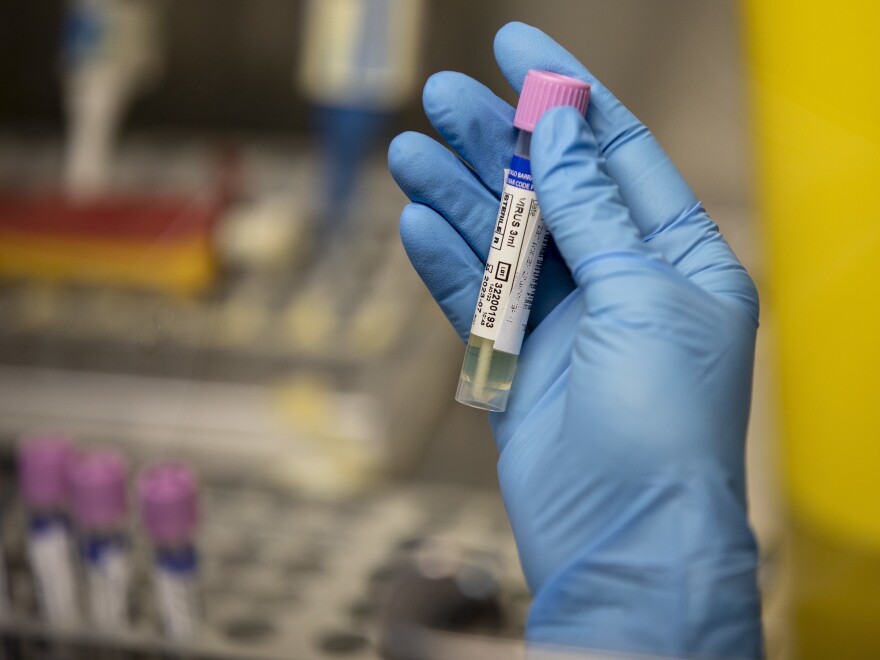Two months after the first monkeypox case was detected in the U.S., the case count has risen to more than 1,800, according to the Centers for Disease Control and Prevention.
And once again, New York is bearing the brunt of a virus. Much like the COVID-19 pandemic, the state has become an epicenter for the latest outbreak, with almost 500 cases, characterized by painful, itchy poxes and lesions that can last for up to a month.
New York City looked prepared with 14,500 doses of the vaccine ready to go. Then the website to make appointments crashed.
"The first thing was, service is unavailable," said Kevin Heard, who spent an hour and a half trying to refresh the page. He was able to make appointments for himself and his partner, but others weren't so lucky.
By the time Cody Dean had logged on and tried to book, the website was down altogether. And the time he spent trying to get through made him think about all the New Yorkers who don't have that luxury.
"I own a technology consulting business — I have the privilege of sitting here for 90 minutes to get through every step here, and I was still unsuccessful. I seriously doubt that someone working, you know, in a retail job in another borough could do that," he said. "I guarantee you that the folks that actually got appointments will not be representative of the city of New York."
New York City Health Commissioner Ashwin Vasan has apologized for the technical and logistical glitches. He told NPR that the city was still fighting COVID-19, which had stretched its resources to a "maximum bandwidth."
"I think that what you found was a public health system that has been shorn of a workforce, with incredible rates of burnout and mental health issues amongst health care workers and public health workers," he said. "And I think that what we need to do is support that infrastructure, support those workers, so that we can manage multiple crises at once, which is what we're in the midst of doing."
One small relief is the fact that monkeypox is not as contagious or easily spread as COVID-19. It is rarely fatal and doesn't generally lead to hospitalization.
"Monkeypox is very different," said Dr. Jennifer McQuiston, incident commander for the monkeypox response at the Centers for Disease Control and Prevention. "It's not spread easily. It requires direct, close contact. And most of the cases that we're aware of are associated with intimate contact and even sexual contacts."
The CDC is trying to identify cases and possible outbreak areas by ramping up testing capacity — from 6,000 tests a week to 70,000. And by the middle of next year, the U.S. expects to have 7 million vaccine doses.
"We've updated our vaccine allocation strategy to Phase 2B," said CDC director Dr. Rochelle Walensky. "We continue to prioritize both jurisdictions, seeing the greatest number of cases and communities of highest risk."
Right now, one of those is the LGBTQ+ community, with the majority of monkeypox cases are showing up in men who have sex with men. And Walensky admits that vaccine distribution isn't ideal right now.
"I want to acknowledge that at this time, demand for vaccines from jurisdictions is higher than our current available supply and we know that this is frustrating," she said at a briefing last week.
It's a familiar fear to a country that was nervously awaiting COVID vaccines less than two years ago. But even as the monkeypox outbreak appears new, the disease itself has been on the radar for decades.
Some experts have been critical of the response and said warning signs of the threat were ignored. Walensky is focusing on the positive steps.
"I have learned that in public health never to predict the future," she told NPR. "But what I will say is that we do have the tools here. We know how to prevent the spread."
Copyright 2022 NPR. To see more, visit https://www.npr.org.





